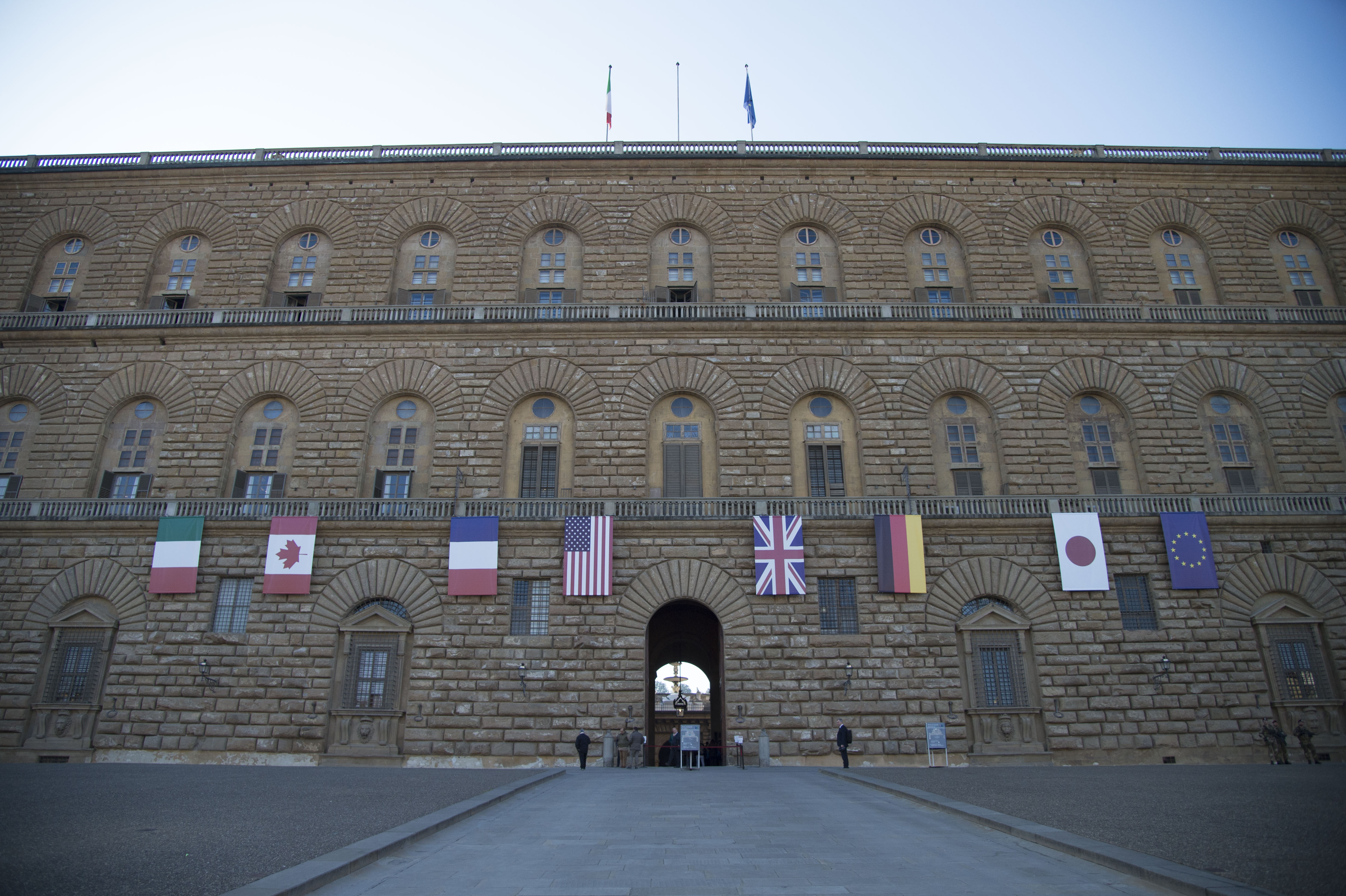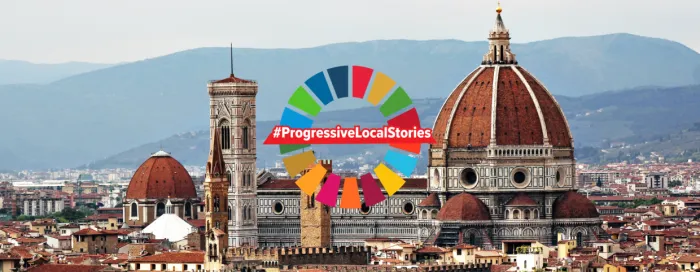Mayor Nardella, why is Florence a progressive city?
I often say that Florence is the smallest global city in the world. Anyone who believes that it is merely the cradle of the Renaissance is quite wrong: the city is a hotbed of culture and good practice for the environment, innovation, mobility and care for the most vulnerable members of society as well as a hub for contemporary society.
Culture holds pride of place in our political agenda, and is seen as the key to training, development and progress. Our administration's remit revolves around culture which is a pivotal component of the city’s DNA. This is where we wanted to hold the first G7 summit to focus on culture in 2017; this is where, the following year, we organised an unprecedented summit celebrating and bringing together for the first time all the European cities which have been capitals of culture since 1985 when the initiative began.

In addition to culture, the city that I want to shape over the next few years gives priority to the environment and sustainability, from new infrastructure such as tramway lines to smart technology which will make people's day to day lives easier. Last but not least, solidarity-based assistance began here, with the Ospedale degli Innocenti hospital which has been taking care of those who have fallen through the cracks for the past 600 years, the Misericordia which cares for the needy, and the formation of a modern civil protection service following the terrible flooding of 1966. Florence is a city of remarkable beauty, art, history and culture, but it has been and is also and most importantly great because it cares for its most vulnerable residents. A progressive city, as Florence is and will be, must keep these two sides to its nature which can be defined simply as humanism.
What policies have you implemented as mayor with a view to achieving the Sustainable Development Goals?
Florence has huge green potential. The city has extensive areas which are not built up and we have two major “zero cement” projects: heavy investment in parks, aimed both at improving existing parks and creating new ones, and the establishment of a network of allotments, areas of unused land which any family who asks will be able to cultivate.
However, a green city also needs a sustainable transport network, and Florence has invested heavily in this. It has two new tramway lines which became operational in the last few months and which link the western suburbs to the airport and the city's main hospital.
Other than the clear advantages in terms of mobility, this means 13 000 fewer cars each day and an annual reduction of 6 300 tons of CO2. As well as the tramway, for some years now we have had carsharing services with 650 cars (250 of which are electric) and bikesharing services which make 4 000 bikes available to 100 000 users. As part of our efforts to promote e-mobility, there are now nearly 400 recharging points around the city, one for every thousand inhabitants. There are 90km of cycle paths which we intend to bring up to 110km by 2020, and the pedestrian area now covers 400 000m2. Since last January, petrol vehicles up to euro 1 class and diesel vehicles up to euro 2 class have been banned from entering the low emission zone. We are also setting up a “green shield” which will protect the entire city from polluting vehicles, with the goal of halving intra-city traffic. Thanks to the new public transport network, we want to reduce the number of vehicles in circulation from 200 000 to 100 000.
Moving from traffic to houses, by 2024 I intend to abolish all household boilers in Florence over 15 years old as they are the chief source of pollutants, starting with CO2. We estimate that there are 40 000 boilers over 20 years old. We will need to allocate at least 8 million euro to provide a 200 euro subsidy for each household as domestic heating is after all responsible for six times the CO2 emitted by city traffic.
Has the European Union helped Florence become a sustainable city? How? What else could be done at European level to help cities like yours to implement a sustainable development agenda?
Yes, definitely. The biggest funding went to the tramway: the last tranche was 200 million – and that is just an example. However, Europe can do a lot for Florence and for cities in general, not least in terms of culture. I am vice-president of Eurocities, the biggest European-level alliance of cities, and I never get tired of emphasising at international and local meetings the crucial role that cities play and must continue to play.
The mayor is the level of authority closest to the public and people turn to their mayor for all sorts of problems. However, cities are part of the dialogue on big issues like climate change and immigration. At a time of great change, including in the European Union, and when the EU’s very existence is being called into question, a new alliance forged at ground level by mayors and cities can only breath fresh life into the European dream which the founding fathers began building after the Second World War. We are therefore asking the European Commission to take steps to ensure that the EU allocates more projects with direct access to financing to cities.
Cities have proven in recent years that they are capable of planning, delivering and reporting just as well as, if not better than, states and regions. So why not entrust them with greater responsibility, why not strive to close the still gaping divide between decision makers and the general public? There are strategic challenges ahead of us and the cities are ready, willing and able to tackle them.
Dario Nardella has been Mayor of Florence since 2014 and the first Mayor of Florence Metropolitan City since 2015. He belongs to the Italian Democratic Party.
**
